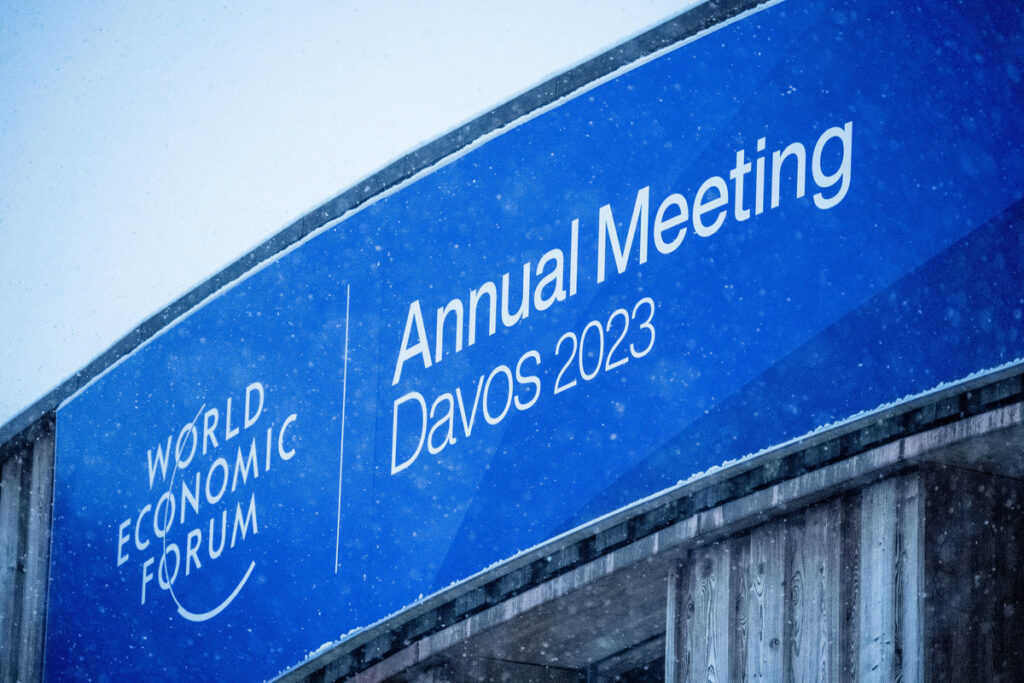World leaders and business executives will descend on the small Swiss resort town of Davos for this year's World Economic Forum (WEF). The conference will take place from 16-20 January and has drawn a record number of attendees, who will discuss the major financial, environmental, and geopolitical issues for the year ahead.
This year's theme is "Cooperation in a fragmented world" and puts the climate crisis at the top of the agenda for the next decade following a WEF report published last week. Yet more immediate issues such as the cost of living crisis and war in Ukraine are distracting political leaders who will come together for panel discussions.
Around 2,700 leaders from 130 countries, which includes 52 government leaders, will participate at the annual Davos summit, according to event organisers. Yet the forum has been lambasted for not coming up with actual solutions and losing relevance.
In fact, just one G7 leader will participate this year. Germany's Olaf Schulz is set to attend although his counterparts are too occupied dealing with challenges on the home front. Schulz will give a special address on Wednesday at 15:45.
Other key attendees include former U.S. Secretary of State Henry Kissinger, WHO Director-General Tedros Ghebreyesus, U.N. Secretary-General Antonio Guterres, and actor Idris Elba.
European leaders to attend include Belgium's Alexander De Croo, European Commission chief Ursula von der Leyen, President of the European Parliament Roberta Metsola Finland's Sanne Marin, Mark Rutte from the Netherlands, and Spain's Pedro Sánchez.
Climate crisis
Based on a survey from the pre-conference report, respondents said the greatest challenges are related to the climate including failing to limit climate change, extreme weather, loss of biodiversity and the collapse of ecosystems.
In the short term, the challenges are related to achieving zero emissions and reaching 2030 targets. Yet after the war in Ukraine and the ensuing energy crisis, commitments toward the green transition were put on the back burner in many countries, even as extreme weather increased last year.
WEF attendees themselves have come under fire for their use of private jets with emissions per person far higher than for commercial flights.
Rollback in human development
The effects of the pandemic and the war in Ukraine have created a gloomier economic outlook, with many WEF leaders fearing a global recession in 2023.
The report stressed that de-globalisation is becoming more popular, with the war in Ukraine highlighting Europe's energy dependence on Russia. Tensions with China have also intensified fears of a semiconductor shortage leading to a focus on "strategic autonomy".
"Economic warfare is becoming the norm," the report stated. "Tensions will rise as global powers use economic policies defensively to reduce reliance on rivals, and offensively to limit the rise of competing nations."
Related News
- ‘Ramen noodles only’: Unpaid internships cost young people over €1,000/month
- COP27: Belgium and Egypt launch global forum on renewable hydrogen
Disinformation, cybercrime, and growing societal divisions were also of concern in the report. Global wealth inequality was highlighted in an Oxfam report on Monday, which revealed that the richest 1% generated two-thirds of global wealth in the last two years.
"The resulting new economic era may be one of growing divergence between rich and poor countries and the first rollback in human development in decades," the report stated.

